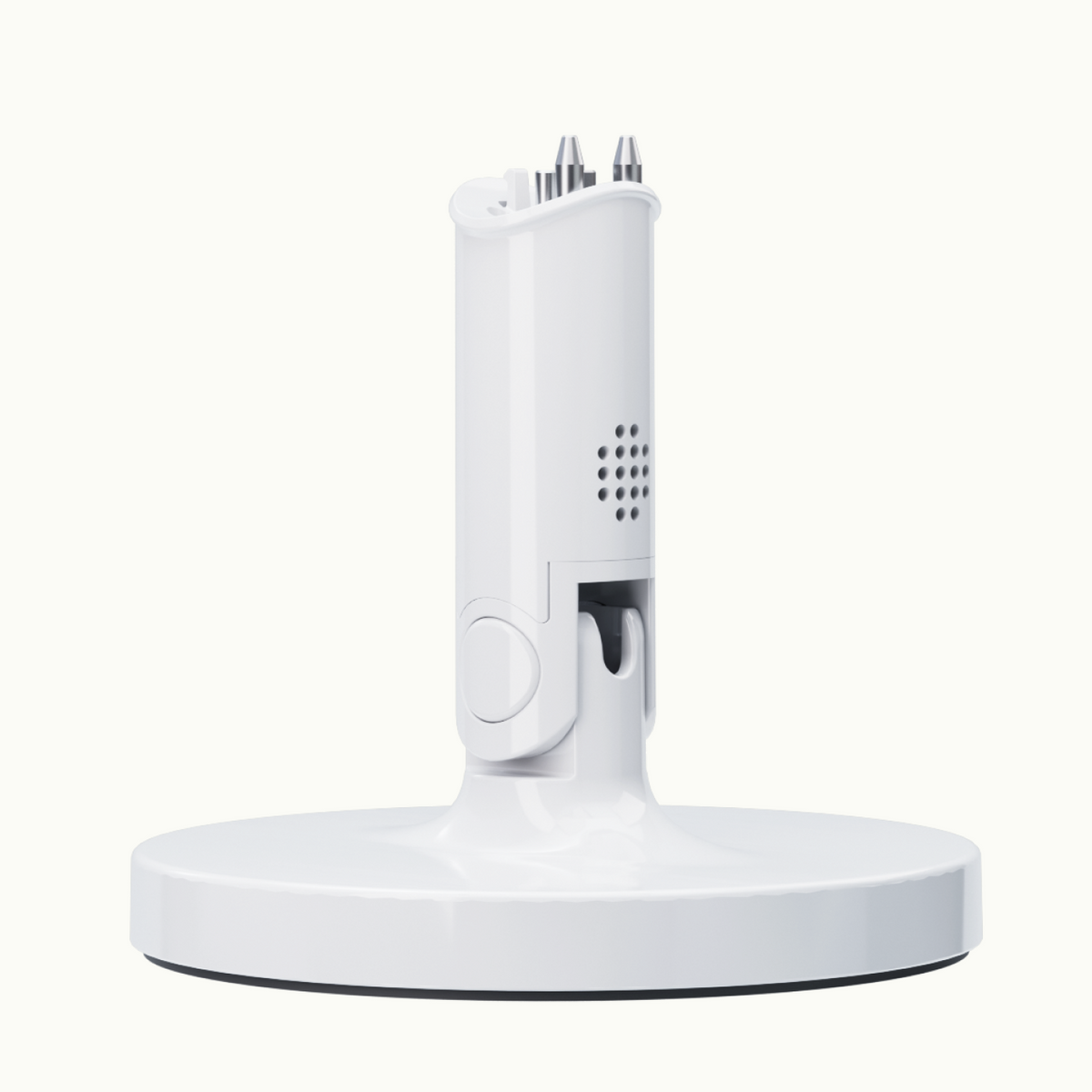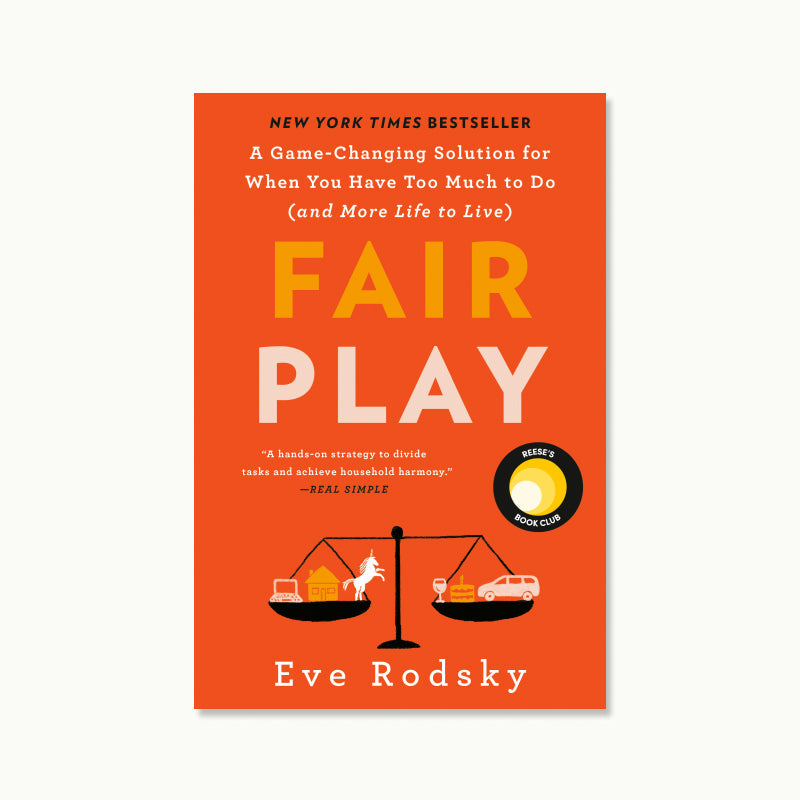Ah, parenthood: From mastering the art of swaddling to decoding your baby’s sleepy cues to trying to understand their wake windows, the journey of a new parent is full of learning.
Amid the transition of welcoming a baby into your home, it's crucial to make time for an essential aspect of parenthood: nurturing other relationships that bring you joy. This includes the bond with your partner and the connections you've cultivated with family and friends over a lifetime.
Fortunately, armed with a little TLC and a handful of helpful tips, you'll have the tools needed to sustain all the important relationships in your life as well as navigating the new normal that is parenthood.
Your relationship with your partner
There’s no doubt about it: The initial excitement of sharing the title of “new parent” can swiftly be eclipsed by sleepless nights and a new routine centered around the care and happiness of your little one—and that's perfectly normal!
However, these changes can reshape the relationship you once had with your partner. Before, you might have known what your partner needed before they did. Now, you may be struggling to identify your own needs, let alone theirs.
If you fall into this category—or worry you might once your little one arrives—you might be wondering: How does parenthood affect marriage?
Here are some of the potential factors that may be affecting your relationship once you become parents:
- Fatigue. When you wake up two to three (or more!) times each night to tend to your baby’s needs, those stolen hours of sleep quickly add up. When fatigue kicks in, so do other symptoms of exhaustion, such as mood swings or impaired judgment. If you’re feeling the fog, let your partner know. Studies show that sharing nighttime duties can lead to better outcomes for everyone. If you can, try out different ways of splitting up the night so you can both get a chance at undisturbed rest.
- Emotional ups and downs. Becoming a parent often brings feelings of attachment and love for your partner, creating a deeper emotional bond between the two of you. But the extra responsibilities can also contribute to added stress or anxiety (often compounded by the exhaustion you are likely feeling).
- Relationship shifts. You may find yourself focusing more on your little one's needs and having less time available for each other. Look for small moments to enjoy and appreciate each other—even if it’s just saying thank you for unloading the dishwasher. A little bit of love and gratitude goes a long way towards maintaining a strong relationship connection while also being the best possible parents for your baby. Don’t be afraid to lean on your other networks for support, or seek health from a licensed clinician separately or together.
- Changes in sex + desire. Numerous factors can play a role in your feelings towards intimacy after baby, including postpartum hormones, breastfeeding, postpartum depression and anxiety, and even your baby’s wake-ups. Yes, you will have sex again–but be kind to yourself and your partner, it may take some time.
- Communication challenges. With a baby on board, your communication might not be as spontaneous and light as it used to be. Try setting aside dedicated time to go over concerns or even just share fun parts of your day or week. It also helps to make time to discuss practical matters like sleep schedules and shared childcare duties. Books like Eve Rodsky’s Fair Play are a great resource to help you navigate responsibility sharing.
Your family relationships
When a new baby joins the family, it gives other family members new roles to learn, such as Grandma, aunt, or big brother. And while there’s plenty in the shift that’s exciting, the change in family dynamics can occasionally feel overwhelming, triggering heightened emotions and sometimes friction among family members.
Here are some of the things that may come up for family members after your baby arrives:
- Strengthened bonds. Sharing the responsibility of caring for a new family member can create stronger ties. It has the potential to mend fractured relationships or forge new bonds that might not have existed before.
- Shift in roles. For many, the prospect of becoming a grandparent is immensely exciting, and they happily jump into a caregiver role…which may come with solicited and unsolicited parenting advice. Though they mean well, it can be overwhelming as a new parent; don’t be afraid to set boundaries with your family members. Additionally, your and/or your partners’ siblings may eagerly embrace the opportunity to be the “fun” aunt or uncle, readily stepping in to babysit whenever you need a date night. Best way to explore date night ideas? When you know you have the childcare support and involvement of your extended family.
- New feelings from siblings. At times, older children eagerly anticipate becoming a big sister or a brother, looking forward to embracing the role. Other times, the big kids may need time to adapt to the new family dynamic, and have feelings of jealousy and uncertainty.
Your friend relationships
Picture this: A close friend of yours has recently welcomed a baby. You're thrilled about their exciting new chapter, but you also notice that your friendship dynamic has shifted. If you're a parent too, maybe you now have more common ground and things to discuss. But if you're not a parent, the presence of a new baby might make you feel like you're on completely different pages.
Here are some common ways that becoming a parent can impact your friendships, depending on what stage of life you’re both in:
- Fellow parents. If you’re joining the parenting club (and your friends are already members), you’ll have new opportunities to strengthen your friendship. You can ooh and ahh over your little ones’ milestones together and create a parenting group chat where you give and get advice. Plus, playdates for your little ones double as friend dates for you and your besties. Wins for everyone!
- Friends without kids. While friends without kids will likely share your happiness over your family’s latest addition, you might both notice a change in shared interests. You’re fired up about your little one’s latest sleep regression, and they’re hashing over the details of the new season of Love is Blind.
New parent tips for maintaining your important relationships
You can definitely protect your important relationships after having a baby, you just sometimes have to do things a little differently. Read on for strategies to nurture and strengthen your connections amidst the joys and challenges of parenthood and how to keep teamwork going strong in a relationship:
- Allocate time for meaningful moments. Before the baby, adjusting your schedule to accommodate your wants and needs was relatively straightforward. Now, the time for catching up and relaxing with your partner or other children may be redirected to caregiving tasks and squeezing in the occasional cat nap. Block out moments in the calendar for you and each member of your family to have quality time together, even if it’s in short bursts. Remember, it’s the quality, not quantity, that counts for maintaining a healthy relationship!
- Discuss financial concerns. Whether you're transitioning to a single-income household or you’ve watched those baby-related monthly expenses rise (hello, diapers!), a change in available funds can also bring on stress and contribute to relationship issues. If your finances are causing you or your partner anxiety, take time to address them together. You may not be able to make immediate changes, but together you can come up with a game plan or at least ensure you’re on the same page.
- Maintain open communication. Whether it's with friends, family members, or any other meaningful relationships, it's crucial to sustain open communication about your new life stage. Most people will understand that you're busy and appreciate that you’re making an effort to check in. Sometimes that’s all you need to keep the sense of connection..
- Include friends in family activities. Late-night cocktail hours? Not so much. But that doesn’t mean you can’t still socialize with your friends during family-friendly gatherings. Next time you hit up your favorite brunch spot or cafe with your family, invite a friend along. You’ll have a chance to catch up without having to find care for your little one.
Find your baby’s best night of sleep with Nanit
Finding the perfect balance between parenting and connecting with family and friends isn’t always easy, but it can be done. One aspect of parenting that remains straightforward night after night is ensuring your little one enjoys a cozy, safe night of sleep.
With Nanit, you can put your little one to bed knowing that you’ll be able to monitor their breathing motions at the click of a button on your phone. You and your partner will have more time to focus on each other —or catching up on some much-needed sleep.
The Nanit Pro Camera and your choice of Breathing Wear, allows parents and caregivers to receive real-time data about their baby’s breathing patterns and be able to track their sleep and growth patterns.
Key takeaways
- Life changes with a newborn. Becoming a parent introduces monumental changes to a relationship. Recognizing and adapting to these changes is crucial for maintaining a strong connection amidst the demands of parenthood.
- Family and friend relationships are also impacted by parenthood. Parenthood transforms family dynamics. It also brings changes to friendships, creating opportunities for connection with fellow parents and adjustments in relationships with friends without children.
- You can maintain your relationships, even as a new parent. Find time to rest and maintain open communication with friends and family, including setting aside moments to discuss practical and important issues, as well as to simply enjoy one another’s company.
Sources
NCT. Changes in your relationships after having a baby. https://www.nct.org.uk/life-parent/your-relationship-couple/relationship-changes/changes-your-relationships-after-having-baby
Better Health. Fatigue. https://www.betterhealth.vic.gov.au/health/conditionsandtreatments/fatigue
NHS. Relationships after having a baby. https://www.nhs.uk/conditions/baby/support-and-services/relationships-after-having-a-baby/



